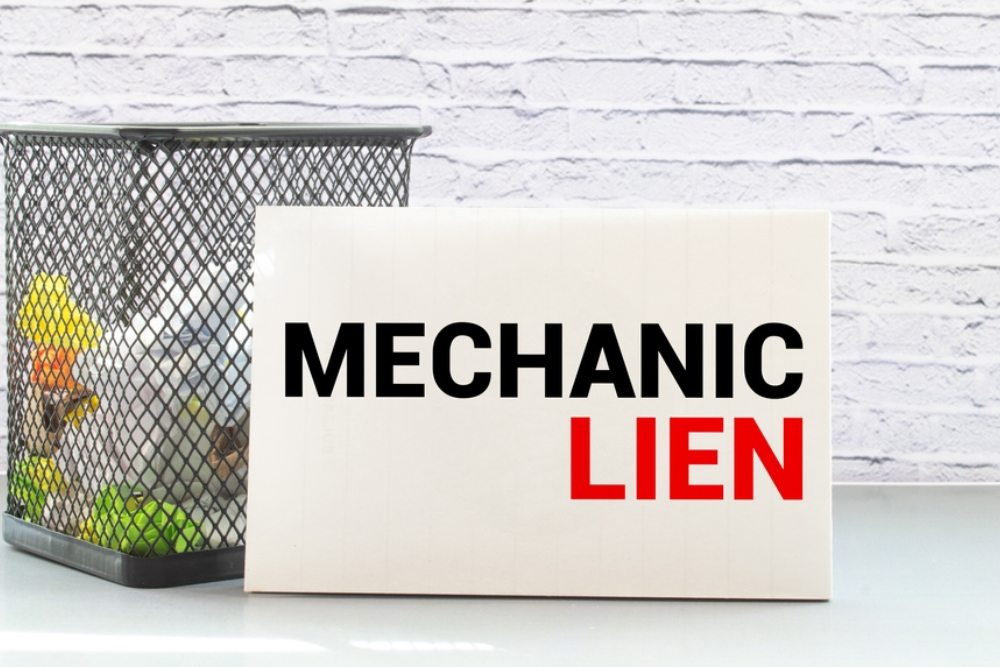Illinois Mechanics Lien Act: What To Know

Everyone deserves to get paid for the jobs they perform. Because of this, a safety net called a mechanic’s lien has been created to ensure appropriate payment. Contact an Illinois mechanic lenient lawyer who can explain the Illinois Mechanics Lien Act before you sign anything.
Mechanics Lien Act Illinois
The Illinois Mechanics Lien Act establishes a method for contractors and suppliers to compel the payment of outstanding funds owed to the owner, tenant, or landowner. A mechanic’s lien ensures that the owner pays all needed payments to the project’s contractors. It is often referred to as a materialman’s or supplier’s lien.
The Illinois Mechanics Lien Act offers contractors and subcontractors the power to attach a lien to the subject property (not the property owner) and then seek a judicial auction of the attached real estate.
Coverage of Mechanic’s Lien
This section of the Act, along with numerous others, ensures that a property owner is never forced to pay more than the contract amount for a project’s completion.
The Act’s Section 5 states:
“It shall be the duty of the contractor to give the owner, and the duty of the owner to require of the contractor, before the owner or his agent … shall pay or cause to be paid to the contractor or to his order any moneys or other consideration … a statement in writing, under oath or verified by affidavit, of the names and addresses of all parties furnishing labor, services, materials … and of the amounts due or to become due to each.”
Mechanic’s Lien Protection
This provision is intended to safeguard contractors and subcontractors while also assisting them in receiving payment for their labor and materials. Contractors and subcontractors, on the other hand, are restricted by time limits in which they can record their mechanics lien and seek the sale of the subject property.
The Act requires the property owner to obtain from the contractor, before paying the contractor or any known subcontractor, a written statement, under oath or verified by affidavit, containing the names and addresses of any parties (e.g., all subcontractors) furnishing any materials and/or labor toward the project, as well as the amounts due to each.
If a property owner fails to comply with the Act, they may end up paying the subcontractors themselves, even if the property owner has already paid the contractor in full, resulting in a payment that exceeds the amount agreed to in the contract.
BOTTOM LINE: The liable property owner should withhold payment from the contractor until receiving a sworn statement (and appropriate lien waivers).
How To Process Mechanic’s Lien
This potent cure might be forfeited if the necessary notices are not given and the timeframes are not met. In Illinois, courts take a strict view of what is needed to complete a mechanic’s lien, and even a little oversight might render a lien unenforceable.
What follows is a checklist of sorts that must be completed before a claim can be processed.
- Notify the owner of the property within the standard time frame of twenty to thirty days and specify exactly what is being contributed.
- The “claim of mechanic’s lien” must be filed in the county where the work was completed if no wages are received.
- Depending on the circumstances, the worker will have between two and six months from the date of filing to resolve the issue with the homeowner before filing suit.
- Filing a lien more than four months after the project’s completion will have no legal consequence.
- Two years after the project’s completion is the absolute cutoff for filing a lien against the homeowner.
Chicago Mechanics Lien Lawyer
Contractors and workers in similar situations put faith in the contracts agreed upon to maintain their livelihood. A mechanic’s lien allows them to take action when those contracts are not fulfilled. For a contractor interested in taking this route, it is critical to familiarize yourself with your town’s laws and take the deadlines seriously.
Contact Grzymala Law Offices to schedule a free consultation. We have an Illinois mechanics lien lawyer who will work to protect your rights guaranteed by the Illinois Mechanics Lien Act.
